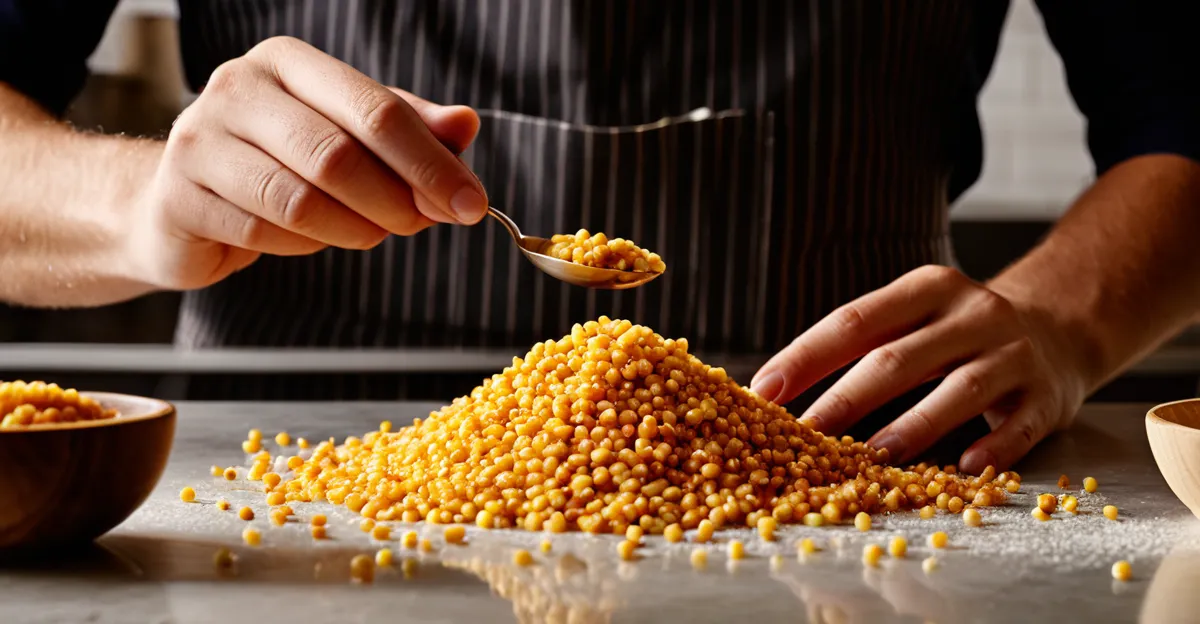British Ingredients and Their Global Footprint
British ingredients have long influenced global cuisine trends, leaving a distinct mark on international kitchens. Historically, British produce, dairy, meats, and spices played a pivotal role in global trade routes, helping spread culinary traditions worldwide. Iconic elements such as cheddar cheese, British lamb, and classic spices like mustard seeds have seamlessly integrated into diverse dishes internationally.
The British culinary influence stems not only from these ingredients but also from how they embody regional terroirs and traditional farming practices. For example, British dairy products, renowned for their rich flavour and quality, are now staples in fine dining menus across Europe and North America. Equally, British meats like Welsh lamb and Scotch beef find their way into innovative recipes that celebrate sustainable sourcing.
Also to see : How do you make a traditional Lancashire hotpot from scratch?
Current global food trends reflect a renewed interest in authentic, provenance-driven ingredients, where British culinary heritage is gaining traction. Chefs worldwide experiment with British herbs and vegetables, creating dishes that balance tradition and modernity. This global footprint showcases how British ingredients continue to inspire culinary creativity beyond their local origins, affirming their importance in shaping contemporary international dining experiences.
Iconic British Ingredients Shaping International Menus
British ingredients have firmly planted themselves into international recipes, prized for their quality and distinct character. Key British produce such as root vegetables—including carrots and parsnips—feature prominently in diverse culinary traditions. Likewise, British dairy products, especially cheeses like cheddar and Stilton, are often showcased on global menus for their rich, tangy profiles.
Also read : How do you create a hearty and flavorful beef Wellington?
British meats, particularly Welsh lamb and Scotch beef, are celebrated internationally for their tenderness and depth of flavour. These meats appear in fine dining as well as casual eateries worldwide, often paired with ingredients to highlight their natural qualities. British spices, like mustard seeds and horseradish, add unique zest to dishes, demonstrating their adaptability and appeal.
On many top-tier restaurant menus, British ingredients are spotlighted not just for tradition but for their versatility. Chefs integrate British produce to balance dishes creatively and sustainably. This presence underlines the role British ingredients play in enhancing culinary diversity and maintaining authentic taste experiences in modern food culture.
The inclusion of British dairy, meats, and spices in international recipes confirms their ongoing relevance in global cuisine trends. By adapting these iconic elements, chefs craft dishes that honour tradition while inviting innovation.
Adaptation and Reinvention of British Flavours Worldwide
British-inspired dishes are increasingly celebrated for their blend of tradition and innovation, fueling culinary innovation across continents. International chefs reinterpret classic British recipes, transforming staples like shepherd’s pie or roast lamb into fusion cuisine that appeals to diverse palates. This process often includes combining British ingredients with local flavours, creating new taste experiences that respect the roots of the originals while adding fresh twists.
For example, British dairy products such as cheddar cheese are integrated into global tapas or Asian-style cheese sauces, demonstrating versatility and creativity. British meats like lamb are reimagined in Moroccan or Indian spiced dishes, highlighting how British ingredients anchor diverse culinary creations while encouraging fusion cuisine.
This trend reflects a broader movement where chefs use British ingredients not only to honour heritage but also to drive innovation. British spices such as mustard seeds and horseradish add unexpected dimensions that work well in contemporary dishes worldwide. The dynamic reinvention of British flavours showcases their continued relevance in evolving food cultures, with chefs embracing British culinary influence to push boundaries and excite diners globally.
British-inspired fusion dishes serve as testament to the adaptability of British ingredients, proving they inspire fresh ideas without losing their distinct character, and cementing their place in modern international gastronomy.
British Produce in Global Culinary Innovation
British culinary innovation is gaining notable recognition among international chefs, who appreciate the versatility and quality of British produce. Leading gastronomes often cite British ingredients as essential to creating dishes that balance tradition with modern tastes. For instance, British root vegetables, prized for their robustness, are frequently incorporated into menus worldwide, enhancing textures and flavours with a familiar yet distinctive touch.
Chefs highlight how British dairy, especially cheeses like cheddar and Stilton, lend depth to both classic and experimental recipes. The rich creaminess and sharp tang of British cheeses elevate sauces and accompaniments, inspiring new culinary approaches. British meats, including Welsh lamb and Scotch beef, are valued not just for their flavour but also for the sustainable farming practices behind their production—a vital element in current global food trends emphasizing provenance and ethics.
Food experts observe a growing pattern where the sustainable sourcing and authentic quality of British produce align with international demands for ethical, traceable ingredients. This focus on sustainability coupled with outstanding taste fuels interest in British ingredients among chefs devoted to innovation. As a result, British culinary innovation continues to shape contemporary food culture, influencing menus from urban fine dining to farm-to-table experiences globally.
The Ongoing Evolution: Future Influence of British Ingredients
British ingredients are poised to play an increasingly significant role in shaping global food culture. As international chefs and consumers grow more discerning, the future of British cuisine is expected to emphasize both heritage and innovation. Current ingredient trends suggest that British produce, dairy, and meats will continue to attract attention for their quality and ethical sourcing, appealing to markets that value sustainability alongside flavour.
The role of British culinary education also helps drive this evolution. Institutions focusing on traditional skills and modern techniques prepare chefs to reinterpret classic British elements. This training fosters a new generation of culinary experts who are equipped to expand British ingredients’ reach in global kitchens. Through exports and knowledge-sharing, British influence is projected to deepen, contributing to evolving international recipes.
Predictions for the future of British cuisine emphasize further fusion and creative use of iconic ingredients. British spices and seasonal produce, combined with innovative culinary methods, will likely inspire novel dishes that resonate worldwide. As British ingredient trends unfold, they are expected to uphold a balance between preserving tradition and embracing contemporary tastes, securing their lasting impact on global gastronomy.




